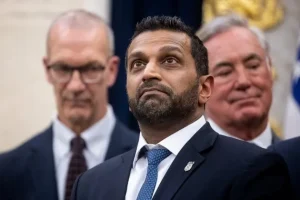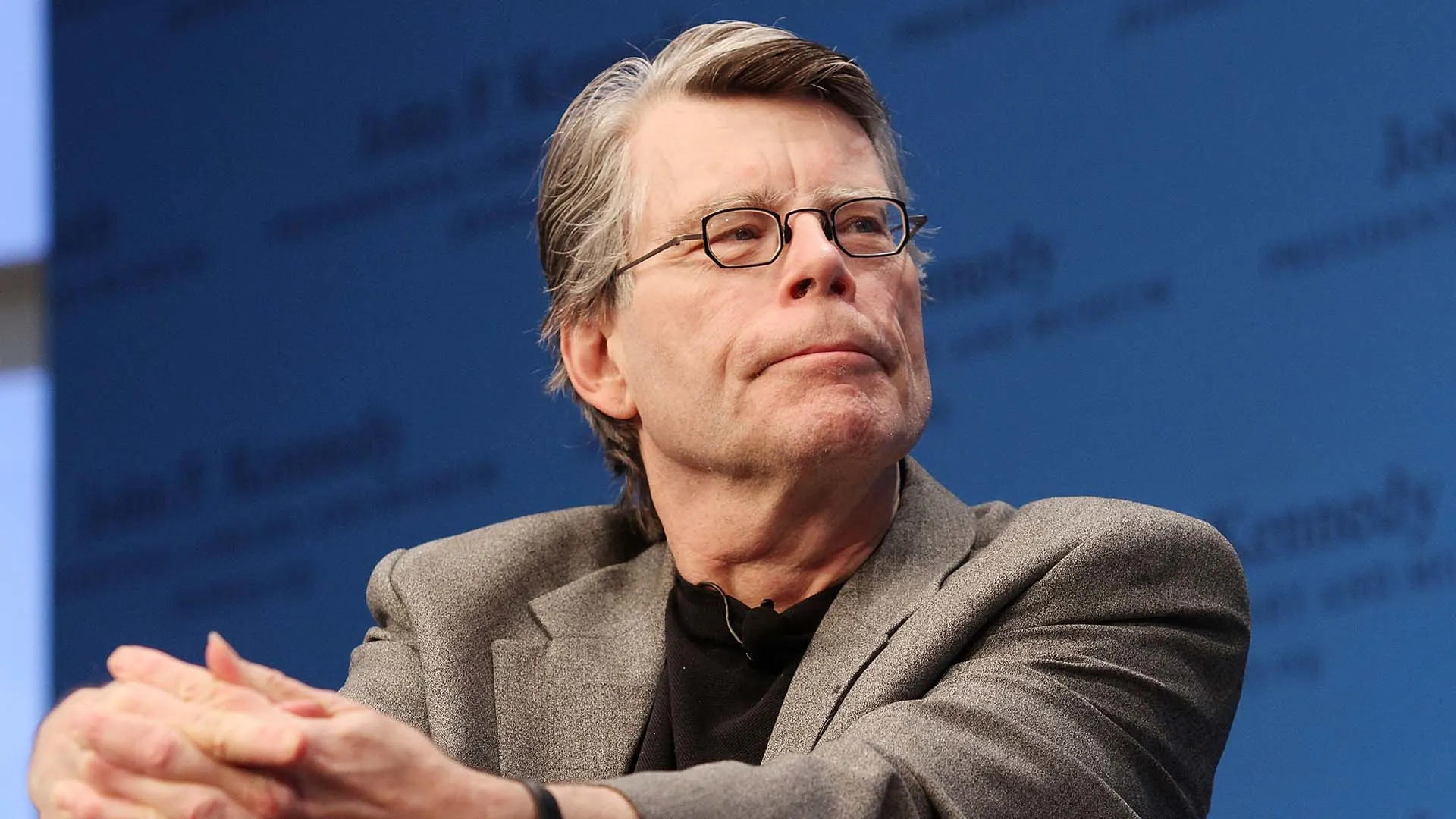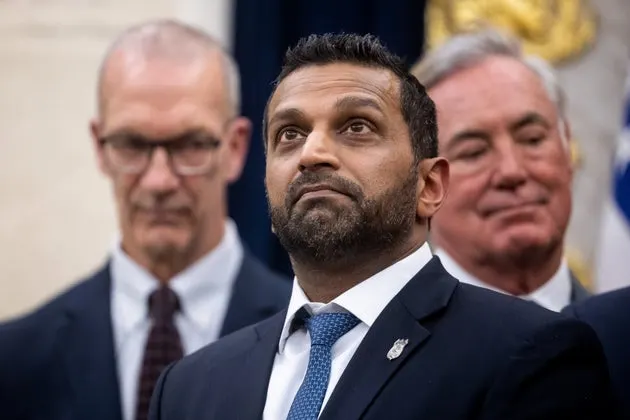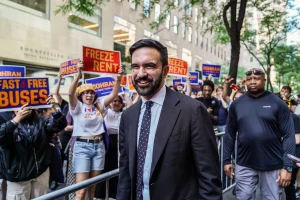When a public figure like Stephen King steps into a heated political conversation, it usually makes waves—but few were prepared for just how pointed, concise, and effective his response would be. In just 11 words, the famed horror writer dismantled a wave of racially charged criticism aimed at Zohran Mamdani, the newly elected mayor of New York City. What unfolded afterwards was a powerful snapshot of America’s ongoing struggle with identity, politics, and prejudice in the social media age.
The Election That Ignited a Firestorm
Zohran Mamdani’s path to becoming the mayor of New York City was one for the history books. At 34 years old, Mamdani is not only one of the youngest leaders the city has ever had, but he is also the first Muslim and South Asian to be elected to the position. His background, his politics, and his platform energized younger voters, especially those on the political left who saw in him a rare kind of clarity and conviction.
Despite facing established rivals like former governor Andrew Cuomo and conservative radio figure Curtis Sliwa, Mamdani pulled off a decisive win. When the final votes were tallied, he had secured 50.4 percent of the vote, beating Cuomo’s 41.6 percent and Sliwa’s 7 percent.
But where many saw a victory for representation and progressive policy, others saw a threat.
The Dangerous Shift from Politics to Prejudice
Almost from the moment Mamdani’s victory was announced, social media lit up with comments—many supportive, others intensely critical. What should have been healthy ideological debate quickly devolved into ugly rhetoric. Certain conservative influencers, public figures, and content creators began spreading posts suggesting that a Muslim leading New York City was somehow a betrayal of the city’s past and its pain.
Among the more extreme reactions was a widely shared post featuring the burning Twin Towers in the aftermath of the 9/11 terror attacks. Superimposed over the image was a provocative caption:
“How the hell does the city that experienced the biggest Islamic terrorist attack in history vote for a Muslim mayor?”
It wasn’t just insensitive—it was fundamentally irrational. It attempted to link Mamdani personally to the horror of 9/11 simply because of his religion, implying that no Muslim could ever lead the city with integrity. The post circulated broadly, especially in political echo chambers online. Some viewed it as a wake-up call; others saw it for what it was: a blatant attempt to weaponize tragedy and inflame hatred.
And then Stephen King entered the conversation.
Stephen King’s Viral Reply
Stephen King, a long-time social commentator in addition to being one of the world’s most successful authors, didn’t quote statistics or deliver a lengthy essay. He didn’t even respond with outrage. He simply pointed out one glaring, absurd fact:
“Um, he didn’t do it. He was 10 at the time.”
In a single sentence, King unmasks the incoherence of the critique. The post he responded to had tried to craft a narrative of implied guilt—suggesting voters had betrayed the memory of 9/11 by choosing a Muslim. King flipped it instantly: Why blame a child? Zohran Mamdani was born in October 1991. At the time of the attacks, he was just a few weeks shy of turning ten. He was a fourth-grader. The idea that he should carry responsibility for an act committed by monsters halfway across the world was, put simply, absurd.
King’s tweet went viral almost immediately. It didn’t need anger. It used facts, and a bit of dry sarcasm, to show how utterly irrational the argument was in the first place. And thousands of comments poured in responding not just to King, but to the post he dismantled.
How People Reacted Online
Some responses were full of relief—people thankful for a moment of sanity in what felt like an increasingly hostile conversation. Others were horrified, not by Mamdani’s election, but by the rhetoric being used to attack it.
One person replied:
“And the Oklahoma City bomber was a supposed devout Christian, and people continue to elect Christians… one statement as stupid as the other.”
Another noted:
“The amount of people who share the images of my cousin and thousands of others getting murdered for scare tactics and political points is sickening. No matter the party, it should never be shared.”
Others tried to add historical perspective, pointing out how irrational bigotry sounds when you strip the emotion away. One wrote:
“It’s like saying how can a Black person be friends with a white person because their ancestors were enslavers. Totally makes no sense.”
A more politically minded commenter added:
“People vote on his record and policies, not on bigoted generalizations.”
Over and over again, people echoed the same sentiment: that bigotry dressed as “political concern” is still bigotry. And, crucially, that New Yorkers can vote based on present-day needs—not on the smearing of entire communities.
And that distinction is especially important, because until that point, no one had fully addressed the elephant in the room: the suggestion that Mamdani, a Muslim, should feel shame—or apologize—for being who he is.
That’s where Mamdani himself finally stepped in.
Zohran Mamdani Responds — But Not in the Way Critics Had Hoped
In his acceptance speech, Zohran Mamdani made it clear that he understood what was happening. He wasn’t blind to the racist commentary. He wasn’t unaware of the mistrust baked into some corners of society. But he refused to play along with it.
In the middle of his speech, after thanking voters and acknowledging the responsibilities ahead, he paused to acknowledge the unspoken tension. He said:
“I am Muslim. I am a Democratic Socialist, and most damning of all, I refuse to apologize for any of this.”
The room erupted in applause—not from rage or defiance, but relief. It was a moment of honesty that cut through the noise of political calculation. Mamdani made it clear: he wasn’t going to apologize for his identity, his principles, or the movement behind him.
He continued:
“And yet, if tonight teaches us anything it is that convention has held us back.
We have bowed at the altar of caution and we have paid a mighty price.
Too many working people cannot recognize themselves in our party.
Too many among us have turned to the right for answers for why they have been left behind.
We will leave mediocrity in our past. No longer will we have to open a history book for proof that Democrats can dare to be great.”
It was an unusual moment in modern politics—equal parts personal and political, defiant yet hopeful. And it reminded his audience that identity politics cuts both ways. It can be used to attack, but it can also be used to break open new possibilities.
The Bigger Story
In the end, the conflict around Mamdani’s victory isn’t really about one mayoral race. It’s about a nation still wrestling with trauma, identity, religion, and responsibility. It’s about how easily public conversations can become tangled in fear—and how badly society needs people willing to inject reason into the chaos.
Stephen King didn’t stop the criticism. He didn’t fix the polarization or erase the pain of the past. But in those 11 words, he showed how powerful truth can be when it’s wielded simply, boldly, and without hesitation.
And as Mamdani steps into office, the story has shifted from “Why did they elect him?” to “What will he do now that he’s here?”
That’s not just clarity. That’s progress.

Emily Johnson is a critically acclaimed essayist and novelist known for her thought-provoking works centered on feminism, women’s rights, and modern relationships. Born and raised in Portland, Oregon, Emily grew up with a deep love of books, often spending her afternoons at her local library. She went on to study literature and gender studies at UCLA, where she became deeply involved in activism and began publishing essays in campus journals. Her debut essay collection, Voices Unbound, struck a chord with readers nationwide for its fearless exploration of gender dynamics, identity, and the challenges faced by women in contemporary society. Emily later transitioned into fiction, writing novels that balance compelling storytelling with social commentary. Her protagonists are often strong, multidimensional women navigating love, ambition, and the struggles of everyday life, making her a favorite among readers who crave authentic, relatable narratives. Critics praise her ability to merge personal intimacy with universal themes. Off the page, Emily is an advocate for women in publishing, leading workshops that encourage young female writers to embrace their voices. She lives in Seattle with her partner and two rescue cats, where she continues to write, teach, and inspire a new generation of storytellers.









